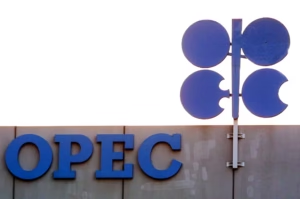Global financial markets were rocked by Israel’s military attacks on Iran on Friday, sparking fears that Tehran may strike back by attacking shipping via the Strait of Hormuz, one of the most important chokepoints for energy transportation in the world.
If that occurs, it would cause supply disruptions for gas and oil, which might lead to a new wave of inflation worldwide.
According to emailed remarks from Kristian Kerr, head of macro strategy at LPL Financial, “the main market concern lies with Iran potentially closing the Strait of Hormuz, a critical chokepoint for global oil and gas.”
Following Israel’s airstrikes against Iran, oil prices surged up to 14% overnight, but on Friday, both the U.S. and international benchmarks retracted more than half of the gains.
Brent crude (BRN00) (BRNQ25) for August delivery surged more than 7% to conclude at $74.23 a barrel on Friday afternoon, while West Texas Intermediate crude oil for July delivery (CL.1) (CLN25) was still up 7.3% to settle at $72.98 a barrel.
According to Dow Jones Market Data, the strong gain also caused the global and U.S. crude oil benchmarks to rise by the most percentage points in a single day since March 2022.
Indeed, worries about a new global energy crisis are merely hypothetical at this time, especially since previous geopolitical upheavals have frequently only resulted in brief increases in oil prices.
However, market analysts caution that a significant disruption to global energy supply due to the Strait of Hormuz closure may cause oil prices to rise sharply and persistently, adding to inflation pressures already putting a strain on businesses and consumers.
According to a group of J.P. Morgan strategists led by Natasha Kaneva, head of global commodities research, “our comfort zone remains with oil prices in the $60 to $65 [per barrel] range, as sustained gains in energy prices could have a dire impact on inflation, reversing the months-long trend of cooling consumer prices in the U.S.”
Earlier in the week, Kaneva issued a warning that an assault on Iran may cause the consumer-price index (CPI) to drop to 5% and oil prices to soar to $120 per barrel.
20% of the world’s supply of liquefied natural gas and about 20 million barrels of oil and oil products pass through the Strait of Hormuz, which connects the Persian Gulf to the Indian Ocean. Iran has, however, previously declined to block the corridor, perhaps because it does not want to escalate confrontations “from hybrid warfare into a full-blown war,” according to Kaneva and her team.
The J.P. Morgan team also stated that Iran would “almost certainly incur significant costs,” adding that any attempt to close the strait would be seen as a direct threat to the economic interests of the majority of Gulf states, including their main clients in China, India, Japan, and South Korea, in addition to being a breach of international norms.
“OPEC oil producers may decide to make up for any short-term disruptions in Iranian oil production. Additionally, experts at Danske Bank in Denmark stated that if the market tightened too much, the United States could decide to sell its strategic oil supplies.
The escalation between Israel and Iran, however, is “adding additional fuel to the inflation narrative,” according to Tim Urbanowicz, head of research at Innovator, since increased oil prices may have an impact on other parts of the consumer index.
According to the May CPI report released on Wednesday, headline inflation decreased to a lower-than-anticipated 2.4% last month compared to a year ago, while core CPI—a more carefully watched indicator that excludes volatile food and energy costs—rose 2.8% annually, which was also lower than anticipated.
On Friday afternoon, U.S. markets ended the day much lower. With a weekly loss of 1.3%, the Dow Jones Industrial Average DJIA fell roughly 770 points, or 1.8%, to close at 42,197. According to FactSet statistics, the Nasdaq Composite COMP dropped 1.3% and the S&P 500 SPX was down 1.1% on Friday.





